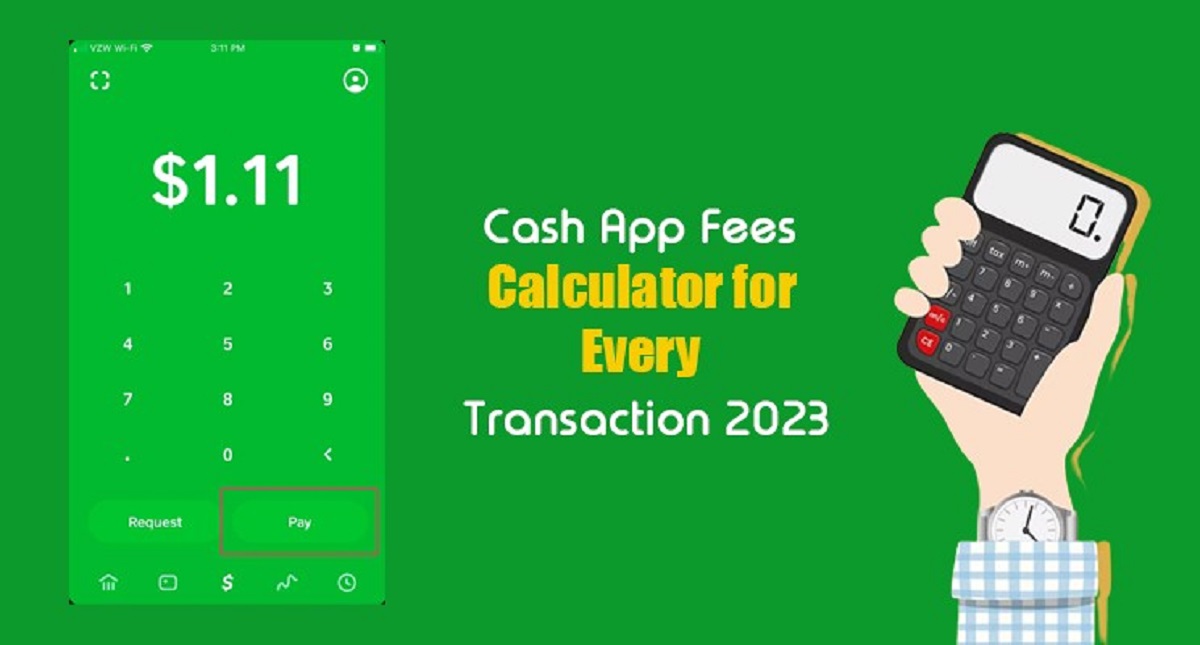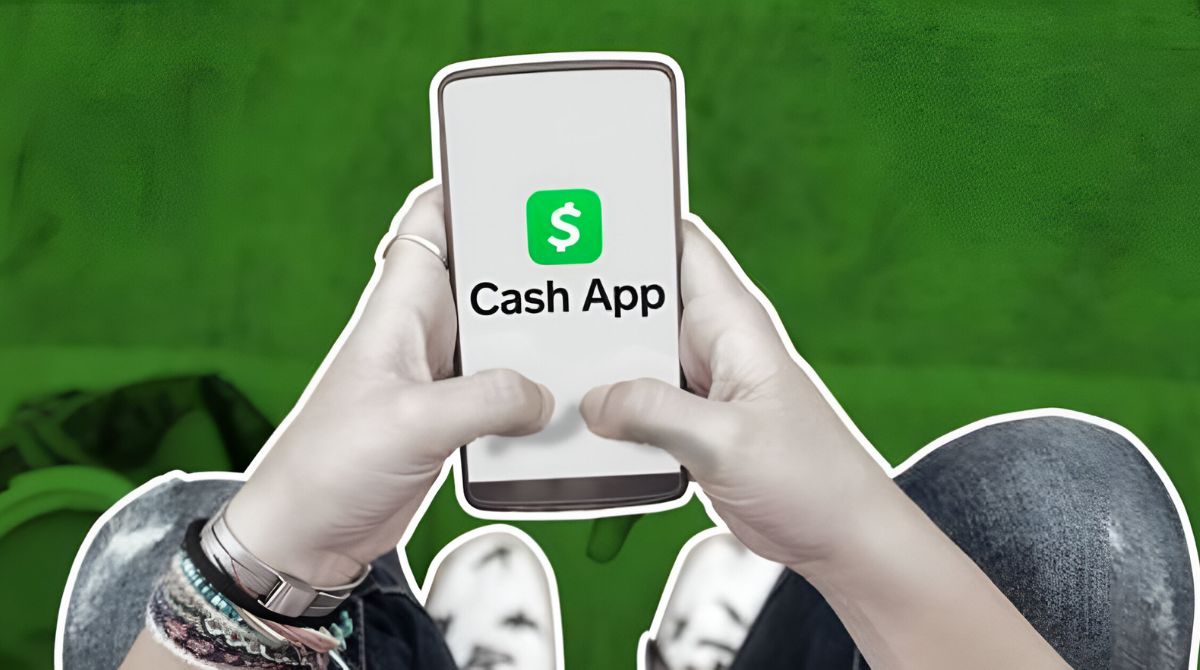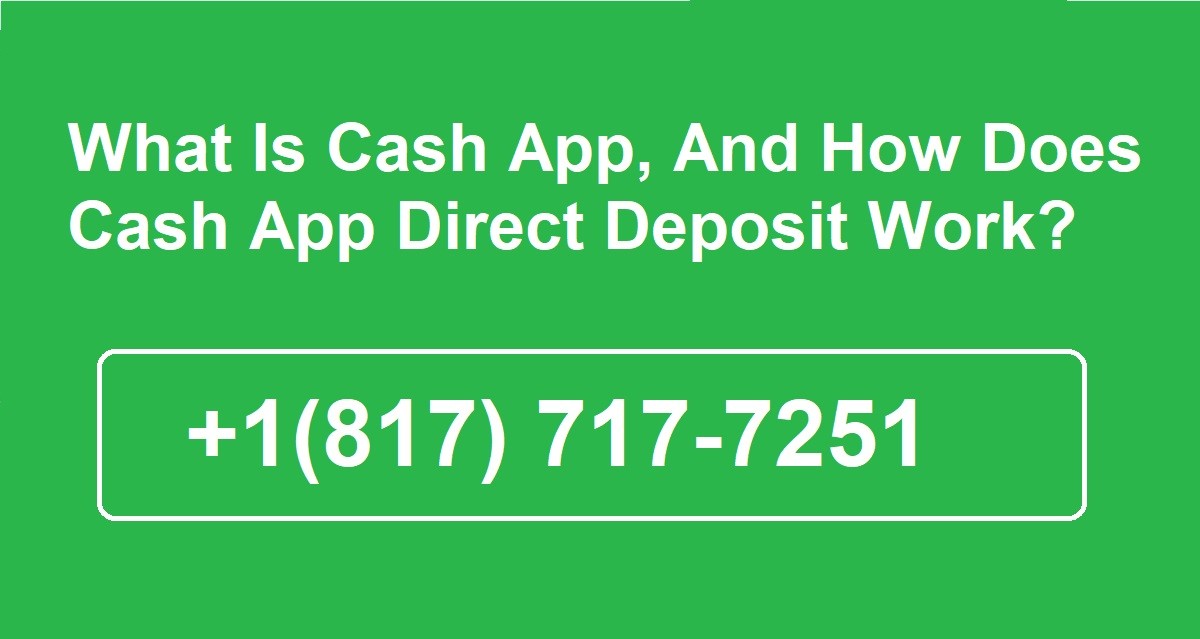What is Cash App?
Cash App is a popular mobile payment service that allows users to send, receive, and request money from friends, family, and businesses. Developed by Square, Inc., Cash App provides a convenient and secure way to handle transactions right from your smartphone.
With millions of users worldwide, Cash App has gained a reputation for its simplicity and user-friendly interface. It offers various features, including the ability to link your bank account, add a debit card, and even obtain a Cash App Visa debit card. This versatile platform has quickly become a go-to choice for individuals and businesses alike.
One of the standout features of Cash App is its ease of use. Setting up an account is straightforward, requiring only a few simple steps. Once you’ve registered and linked a payment method, you can start sending and receiving money right away. The app also provides a clear transaction history, making it easy to track your finances.
Cash App is not limited to personal use alone. It can also be used by small businesses to accept payments from customers. This can be particularly advantageous for individuals in industries such as freelancing, consulting, and retail. Cash App’s user-friendly interface and reliable security measures make it a convenient and trustworthy option for conducting business transactions.
As a mobile payment service, Cash App offers convenience and flexibility. With just a few taps on your smartphone, you can transfer money to friends, split bills, pay for goods and services, or even make online purchases. It eliminates the need for cash or physical cards, streamlining the payment process and making it more convenient for both the sender and the recipient.
In summary, Cash App is a mobile payment service that provides a hassle-free way to send, receive, and request money. With its user-friendly interface, security features, and versatility, it has become a popular choice for individuals and small businesses alike. Whether you’re splitting a bill with friends or running a business, Cash App offers a convenient and secure platform to handle your financial transactions.
How does Cash App work?
Cash App operates through a simple and straightforward process, allowing users to easily send, receive, and manage their money. Here’s how it works:
- Download and Sign Up: To get started with Cash App, you can download the app from the Apple App Store or Google Play Store. After installing the app, you’ll need to sign up with your phone number or email address and create a unique username known as the $Cashtag.
- Add Payment Method: Once you’ve signed up, you can link your bank account or debit card to your Cash App account. This allows you to easily transfer funds to and from your Cash App balance.
- Sending Money: To send money to someone using Cash App, you simply need to enter their $Cashtag, email address, or phone number. After specifying the amount you want to send, confirm the transaction, and the money will be instantly deducted from your Cash App balance and transferred to the recipient’s account. Alternatively, you can also scan the recipient’s QR code using the app’s built-in scanner.
- Receiving Money: When someone sends you money through Cash App, you’ll receive a notification. The money will be instantly added to your Cash App balance. You can then choose to keep the money in your Cash App account or transfer it to your linked bank account.
- Using the Cash Card: Cash App also offers a physical Cash Card, which is a customizable Visa debit card linked to your Cash App account. You can use this card to make purchases at any merchant that accepts Visa, both online and in-store. The funds are directly deducted from your Cash App balance.
- Managing Transactions: Cash App provides a clear transaction history where you can track all the money sent and received. The app also allows you to request money from your contacts and split bills with friends, making it easy to keep track of your finances.
In summary, Cash App simplifies the process of sending, receiving, and managing money. With its user-friendly interface and various features like linking payment methods, sending and receiving funds, and using the Cash Card, Cash App offers a convenient and efficient way to handle your financial transactions.
Is there a fee for using Cash App?
Using Cash App is generally free for personal users. However, there are certain instances where fees may be applicable. It’s important to be aware of these fees to avoid any surprises. Here’s what you need to know:
Sending Money: When you send money from your Cash App balance, there are no fees. However, if you choose to send money using a linked credit card, Cash App applies a 3% fee to cover the processing cost. It’s worth noting that sending money using a debit card or linked bank account is fee-free.
Receiving Money: Receiving money into your Cash App account is generally free as well. You can receive money from other Cash App users or receive payments from businesses without incurring any fees.
Using the Cash Card: If you have a Cash App Visa debit card, there are no fees for making purchases online or in-store. However, certain ATM withdrawals may incur fees, which are determined by the ATM operator.
Cash App Instant Deposit: Cash App offers an Instant Deposit feature where you can deposit funds from your Cash App balance to your linked bank account instantly. This service, however, comes with a 1.5% fee. If you’re not in a rush, you can choose the standard deposit option, which is free and takes 1-3 business days.
Cash Out Options: When you want to transfer money from your Cash App balance to your linked bank account, Cash App may charge a fee. It’s essential to review the terms and conditions for cashing out, as fees may vary based on the timing and speed of the transaction.
It’s important to keep in mind that Cash App fees may change over time, so it’s a good idea to review the latest fee structure on the Cash App website or within the app itself. Being aware of any applicable fees will help you make informed decisions and manage your finances effectively.
In summary, while Cash App is generally free to use, there are certain circumstances where fees may apply. These include sending money using a linked credit card, using the Instant Deposit feature, and cashing out to a linked bank account. Familiarizing yourself with the fee structure will ensure you have a clear understanding of any potential charges associated with your Cash App transactions.
What are the fees for sending money through Cash App?
When it comes to sending money through Cash App, there are a few factors to consider regarding fees. Here’s an overview of the fees associated with sending money:
Using Cash App Balance: If you have sufficient funds in your Cash App balance, there are no fees for sending money to another Cash App user. This is the most cost-effective way to send money as there are no additional charges.
Linked Credit Card: If you choose to send money using a linked credit card, Cash App charges a 3% fee. This fee is incurred to cover the cost of processing credit card transactions. It’s important to note that this fee only applies when sending money using a credit card and not when utilizing a debit card or linked bank account.
Linked Debit Card or Bank Account: When you send money using your linked debit card or bank account, there are no fees. This option allows you to send money without incurring any additional charges, making it a cost-effective choice.
It’s crucial to consider these fees when deciding which payment method to use for sending money through Cash App. If you have sufficient funds in your Cash App balance, it’s advisable to utilize that option to avoid any extra charges. However, if you prefer to use a credit card for the transaction, be aware of the 3% fee that will be applied.
It’s also important to keep in mind that these fees may change over time, so it’s recommended to review the most current fee structure on the Cash App website or within the app itself. By staying informed about the applicable fees, you can make informed decisions about how to send money effectively while minimizing costs.
In summary, the fees for sending money through Cash App differ based on the payment method used. While sending money using your Cash App balance incurs no fees, using a linked credit card will result in a 3% fee. On the other hand, using a linked debit card or bank account for sending money is fee-free. Evaluating your options and understanding the fee structure will help you make the best choice for your specific transaction needs.
Are there fees for receiving money through Cash App?
When it comes to receiving money through Cash App, there are generally no fees involved. Cash App allows you to receive money from other Cash App users or receive payments from businesses without any additional charges. This makes it a convenient and cost-effective option for receiving funds.
Whether you’re receiving payment for goods or services or simply receiving money from friends or family, Cash App does not impose any fees on incoming transactions. You can have peace of mind knowing that the full amount of money intended for you will be deposited into your Cash App balance.
As a recipient, you have the flexibility to keep the received funds in your Cash App balance, use them to make purchases using your Cash Card, or transfer the funds to your linked bank account without paying any fees.
It’s important to note, however, that certain activities or transactions may have associated fees. For example, if you choose to transfer money from your Cash App balance to your linked bank account, there may be charges depending on the timing and speed of the transaction. However, these fees are related to the withdrawal process and not directly tied to receiving money.
Additionally, if you decide to use the Instant Deposit feature to transfer funds from your Cash App balance to your linked bank account instantly, there is a 1.5% fee. However, this fee applies to the service of instant transfer and not to the act of receiving money itself.
It’s always a good idea to review the latest fee structure on the Cash App website or within the app to stay updated on any potential changes or applicable fees related to receiving money.
To summarize, there are generally no fees for receiving money through Cash App. Cash App allows you to receive money from other users or businesses without any charges. You have the flexibility to keep the received funds in your Cash App balance or transfer them to your linked bank account without incurring fees. However, other activities like instant transfers or withdrawing funds may have associated fees, which should be reviewed separately.
Are there fees for withdrawing money from Cash App?
When it comes to withdrawing money from your Cash App account, there may be fees associated with certain types of transactions. Here’s what you need to know about the fees for withdrawing money:
Standard Withdrawals: Cash App offers standard withdrawals, also known as “Cash Outs,” where you can transfer your available funds from your Cash App balance to your linked bank account. For standard withdrawals, there are generally no fees. However, it’s important to note that the transfer may take 1-3 business days to complete.
Instant Transfer: If you prefer to have the funds from your Cash App balance transferred to your linked bank account instantly, you can use the Instant Transfer feature. This service allows you to access your funds immediately but comes with a fee. The fee for Instant Transfer is typically 1.5% of the total amount being transferred, with a minimum fee of $0.25.
It’s important to consider the fee structure and timing when deciding whether to perform a standard withdrawal or opt for an instant transfer. If you can wait a few days to receive your funds, a standard withdrawal would be fee-free. However, if you need the funds immediately, the Instant Transfer option may be worth the associated fee.
It’s worth noting that the fee for Instant Transfers may vary based on factors such as the transfer amount and the country in which you reside. It’s important to review the current fee structure within the Cash App app or on their website to obtain accurate information regarding fees for withdrawals.
In summary, while standard withdrawals from your Cash App balance to your linked bank account are typically fee-free and take 1-3 business days, opting for an instant transfer incurs a fee of 1.5% of the total amount being transferred, with a minimum fee of $0.25. Considering the timing and urgency of your withdrawal needs will help you make an informed decision about which option is the most suitable for your specific circumstances.
Are there fees for using the Cash App card?
Using the Cash App card, a customizable Visa debit card linked to your Cash App account, comes with various benefits and features. While there are no fees for making purchases online or in-store using the Cash App card, there are a few things to be aware of when it comes to potential fees.
Here are some important points to consider regarding fees associated with the Cash App card:
Purchase Transactions: When using the Cash App card to make purchases online or at physical merchants, there are typically no fees imposed by Cash App. You can enjoy the convenience and flexibility of making transactions without incurring any additional charges.
ATM Withdrawals: If you decide to withdraw cash from an ATM using your Cash App card, there may be fees involved. These fees are determined by the ATM operator and are separate from any fees charged by Cash App. It’s advisable to check with the ATM operator about their fee structure before conducting an ATM withdrawal.
Currency Conversion: If you make purchases or withdrawals in a currency different from your Cash App card’s currency, a fee may apply for currency conversion. The specific fee and exchange rate will be displayed within the app at the time of the transaction.
Inactivity Fee: Cash App does not charge any inactivity fees for the Cash App card. You can use the card as frequently or infrequently as you like without worrying about being charged for not using it.
It’s important to note that while Cash App itself does not impose fees for using the Cash App card in most instances, it’s always a good idea to review the most up-to-date fee structure within the app or on the Cash App website. This will ensure that you have the most accurate and current information regarding any potential fees.
In summary, there are generally no fees for using the Cash App card to make purchases online or in-store. However, be mindful of potential fees for ATM withdrawals, currency conversion, and check for any ongoing updates to the fee structure. By staying informed about the potential fees, you can fully utilize the benefits of the Cash App card while understanding any associated charges.
How much is the fee for Cash App Instant Deposit?
Cash App offers an Instant Deposit feature that allows users to transfer funds from their Cash App balance to their linked bank account instantly. While this feature provides convenience, it does come with a fee.
The fee for Cash App Instant Deposit is typically 1.5% of the total amount being transferred. This means that if you choose to transfer $100 using Instant Deposit, there would be a fee of $1.50. The fee is deducted from the total amount being transferred, and the remaining balance is instantly deposited into your linked bank account.
It’s important to keep in mind that this fee is in place to cover the cost of providing the instant transfer service. If you’re not in a hurry to access the funds and can wait 1-3 business days, you can use the standard deposit option, which is free.
When initiating an Instant Deposit, the fee amount will be displayed within the Cash App app before confirming the transaction. This allows you to review the fee and make an informed decision about whether to proceed with the Instant Deposit or opt for the standard deposit option.
It’s worth noting that fees may vary depending on the specific circumstances. Cash App may update their fee structure from time to time, so it’s always a good idea to review the current fee information within the app or on the Cash App website.
In summary, the fee for Cash App Instant Deposit is typically 1.5% of the total amount transferred. This fee covers the cost of providing the instant transfer service. If you’re willing to wait a few days, you can choose the free standard deposit option. However, when using Instant Deposit, always be sure to review and confirm the fee amount displayed within the app before proceeding with the transaction.
Are there any other fees or charges on Cash App?
While many of the features and services offered by Cash App are free or have nominal fees, it’s important to be aware of any other potential fees or charges that may apply. Here are a few additional fees and charges you should know about:
Return Fees: If you make a payment using Cash App and the transaction is later reversed or refunded, Cash App may charge a return fee. This fee helps cover the costs associated with processing the return or refund.
Foreign Transaction Fees: If you use your Cash App card to make purchases or withdraw cash in a currency different from your card’s currency, there may be foreign transaction fees. These fees are determined by the card network that processes the transaction and can vary.
Cash App Bitcoin Fees: Cash App allows users to buy, sell, and transfer Bitcoin within the app. When making Bitcoin transactions on Cash App, there may be fees associated with buying or selling Bitcoin. These fees are based on market factors and can fluctuate.
Cash App Business Account Fees: Cash App offers business accounts for individuals or businesses. While some features, like receiving payments from customers, are generally free, there may be fees associated with specific business-related services. It’s essential to review the Cash App business account terms and conditions for details on any applicable fees.
It’s important to note that fees and charges may change over time, so it’s wise to review the most up-to-date fee information on the Cash App website or within the app itself. By staying informed about any potential fees or charges, you can make informed decisions and effectively manage your financial transactions on Cash App.
In summary, while many features on Cash App are free or have nominal fees, there may be additional fees and charges for certain transactions and services. These can include return fees, foreign transaction fees, Bitcoin transaction fees, and business account-related fees. Stay updated with the latest fee information provided by Cash App to ensure you have a clear understanding of any potential charges that may apply to your specific usage of the platform.
How to avoid or minimize fees on Cash App?
While Cash App does have certain fees associated with specific transactions or services, there are ways to avoid or minimize these fees. Here are some tips to help you reduce fees on Cash App:
Use Your Cash App Balance: The simplest way to avoid fees on Cash App is to use your available Cash App balance for transactions. When sending money to other Cash App users or making purchases using your Cash App card, using your balance incurs no fees.
Link your Bank Account: Linking your bank account to your Cash App account allows you to send and receive money without any fees. By utilizing your bank account as the funding source, you can enjoy fee-free transactions.
Link a Debit Card: Similar to linking your bank account, connecting a debit card to your Cash App account can help you avoid fees. Sending money using a linked debit card is typically fee-free, making it a cost-effective option.
Avoid Using Credit Cards: Cash App charges a 3% fee when sending money using a linked credit card. To minimize fees, opt for a debit card or bank account instead of using a credit card.
Settle Payments Internally: If possible, encourage your friends or family members to join Cash App. By utilizing the “Cash App to Cash App” feature, where you send money within the app to other Cash App users, you can avoid fees altogether.
Choose Standard Deposits: When transferring money from your Cash App balance to your linked bank account, selecting the standard deposit option is fee-free. While it may take a few business days, this can help you avoid the Instant Deposit fee.
Stay Informed: Fees on Cash App may change over time, so it’s crucial to stay updated on the latest fee structure. Review the fee information within the app or on the Cash App website to ensure you have the most accurate and current knowledge.
By following these tips, you can minimize or even eliminate fees on Cash App. Using your Cash App balance, linking your bank account or debit card, and avoiding credit card usage are effective ways to reduce fees. Additionally, settling payments internally through Cash App and choosing standard deposits can help you avoid unnecessary charges. Staying informed about any changes in the fee structure ensures you have the most up-to-date information and can make cost-effective decisions.
In summary, by utilizing your Cash App balance, linking a bank account or debit card, avoiding credit card usage, settling payments internally, and choosing standard deposits, you can avoid or minimize fees on Cash App. Implementing these strategies allows you to make the most of your Cash App experience while keeping fees to a minimum.
Conclusion
Cash App is a convenient and user-friendly mobile payment service that allows individuals and businesses to send, receive, and manage their money easily. While there are fees associated with certain transactions and services, understanding the fee structure and implementing strategies to minimize fees can help you make the most of your Cash App experience.
By utilizing your Cash App balance for transactions, linking your bank account or debit card as a funding source, and avoiding credit card usage, you can avoid or reduce fees on Cash App. Settling payments internally through Cash App’s “Cash App to Cash App” feature and choosing standard deposits can also help you save on fees.
It’s essential to stay informed about any changes in the fee structure by regularly reviewing the fee information provided by Cash App. This ensures that you have the most accurate and up-to-date knowledge about potential fees that may apply to your specific transactions.
Overall, Cash App provides a convenient and secure platform for handling financial transactions. With its user-friendly interface, various features like the Cash App card and Instant Deposit, and the ability to send and receive money with ease, Cash App has become a popular choice for individuals and businesses alike.
Remember, while using Cash App can make your financial transactions more convenient, it’s important to review and understand the fees associated with specific features and transactions. By doing so, you can make informed decisions, minimize fees, and effectively manage your finances on the Cash App platform.

























